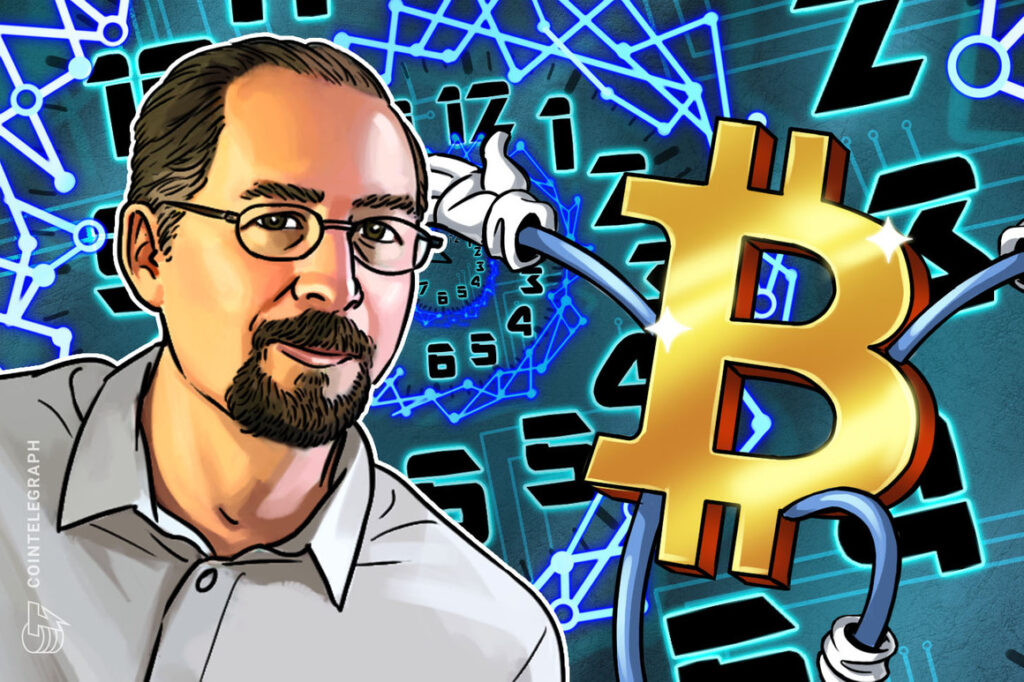Blockstream CEO Adam Back talks Bitcoin over a game of Jenga

Ever since his childhood years, Adam Back, now CEO of Blockstream, would spend his time fidgeting with programming code to look for encryption keys embedded in the software. Born in 1970, the London native completed his A-levels in mathematics, physics and economics before focusing on computing science and earning a Ph.D. from the University of Exeter. Having devoted his career to applied cryptography, Back invented HashCash in 1997, a proof-of-work system used to limit email spam and denial-of-service attacks that later became more renowned for its use in Bitcoin (BTC). In fact, Back was one of the few people to be cited in the original Bitcoin white paper.
Nowadays, Back manages his digital asset custody firm, Blockstream, which is based in Victoria, Canada and raised $210 million in a Series B round last August. During an interview with Cointelegraph reporter Joe Hall, Back explained that what fascinated him so much about Bitcoin at first was its fertile ground for a lot of applied research and development. “It covers lots of interlayer topics or people, like mathematics, computer science and programming,” he said.
When asked what advice he could give to the new generation of Gen Zs and Boomers approaching Bitcoin alike, Back suggested first getting to know the people in the industry. “I think the good way to get involved is to sort of try to contribute to something as a volunteer, as you learn things when you get to interact with people. You know there could be many different things to come across, like user interface, documentation or educational materials.”
The 52-year-old cryptographer is also exploring new physical boundaries for the use of Bitcoin, literally. For a few years now, Back has been operating the Blockstream Satellite Network, which broadcasts the entire Bitcoin blockchain around the world 24/7 through its leased satellites. “You could sync a node from scratch by the satellite; it will take a week or two,” he said, continuing: “But it actually fetches all the history as well and reassembles it. And it’s some pretty cool kind of tech in terms of error correction and redundancy.” According to Blockstream, the setup can “protect against network interruptions” and “provide areas without reliable internet connections access to Bitcoin.” Though, for the privilege of not needing internet to use Bitcoin, one would need a satellite kit in order to receive transmissions.













